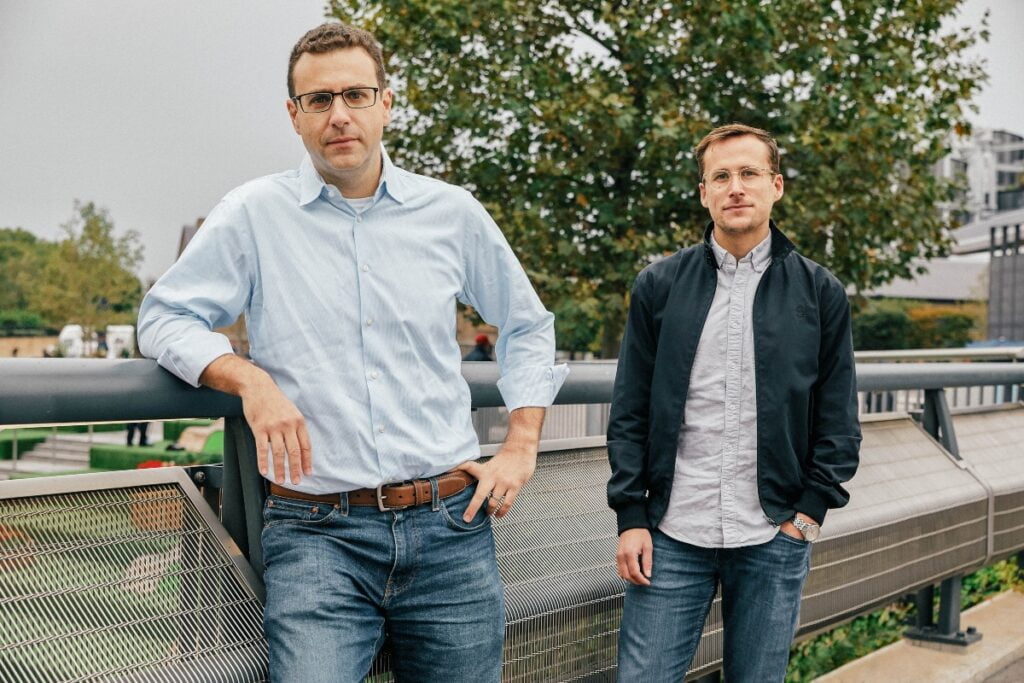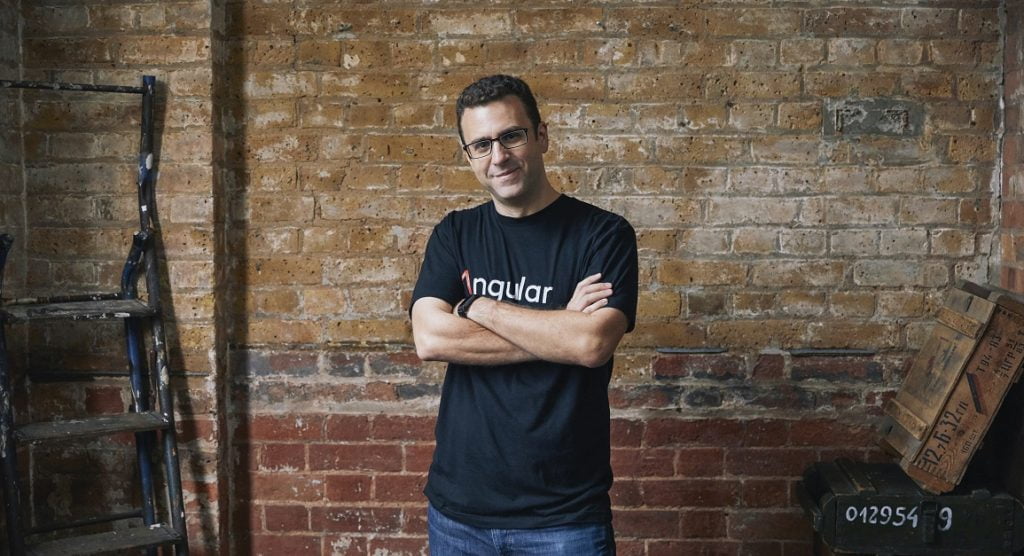Early stage venture capital firm Angular Ventures announced the closing of its $80 million second fund Thursday as it seeks to continue to back deep-tech companies in Israel and Europe.
This second fund is almost double the previous $41 million sum, which invested in 21 companies and closed in November 2019.
Founded in 2019, Angular Ventures is one of the more unusual VC companies in the ecosystem as it specifically seeks out European and Israeli firms at the earliest – and usually riskiest – stages, sometimes before an organization even has a name.
NoCamels interviewed Gil Dibner, Partner at Angular Ventures and David Peterson, whose addition as a new partner, having moved from Airtable, has created something of a stir. The two of them talk openly about the company’s philosophy and why, even taking into account Dibner’s highly impressive record of investing in several now unicorn companies amid a stellar portfolio, Peterson’s addition to the team already looks to be a real game-changer.

With a focus on deep tech companies working to disrupt huge global industries with unique and advanced technologies, Angular’s remit covers enterprise software, nanotechnology, advanced healthcare infrastructure, space technology, agricultural software, and a wide range of advanced machine learning applications and tooling.
Dibner, who has extensive experience of VCs outside of Israel – in the United States and UK – says that his experience in Israel was invaluable to what he achieved outside of the country and what he is now able to bring back. “If we tell people outside of Israel that we need a more Israeli-style VC, that is less of a radical statement now than may once have been the case,” he states. “Also, the fact that more people [throughout the world] now know what needs to be done, doesn’t necessarily make it any easier to do.”
What Dibner has found is that not only are Israeli VCs competing with Tier One US funds for opportunities to invest in the best and brightest companies around the world, those same American funds are aggressively looking to compete for Israeli companies too. “We are part of a whole world of opportunity – and our unique angle was exporting a more Israeli style,” he remarks. In addition, because the company looks to Europe and Israel, not only does it not have a bias but it also takes advantage of Europe’s well-spring of entrepreneurial talent and energy. Dibner is also clear that in his assessment, Peterson’s joining the team furthers Angular’s distance from its competitors.

Building from the ground up
Peterson joined Airtable – a software creation platform – as one of that company’s first 16 employees. It didn’t stay that way for long, however. In his four years as head of growth, the firm expanded to more than 500 employees and a valuation of more than $6 billion.
While Angular Ventures is a different kind of firm, he is drawn to “getting his hands dirty” and working with entrepreneurs at the earliest stages, believing that it is in the initial phases that it is possible to have the most influence and effect the most significant change.
“It’s clearer nearer to the outset what questions you need to answer. Perhaps the ultimate question that needs a solution is how do we find product market fit, although how to get there is usually much more uncertain.”
Sign up for our free weekly newsletter
Subscribe“I enjoy wrestling with founders about problems that are not necessarily obvious,” he enthuses. “Working as an advisor is also about investing in credible ideas. A VC should be about believing in something before everyone else. The type of investing I’m drawn to is one in which there is a deep committed partnership, with trust flowing in both directions. There is a lot of noise, with firms scaling and some of them making a ton of money. Now that everybody cares, our mission is to find where people don’t care.”
With other offers on the table for his services, Peterson could have chosen any number of them. He bonded with Dibner – who introduced him to various different companies – over the pandemic winter in London. The two got to know each other better, until Dibner “popped the question” recalls Peterson. He still hadn’t made up his mind whether to make the leap but he was certain that with Angular’s commitment to a hands-on approach – through investment and mentoring – it reflected his own philosophy and experience within the ecosystem.
Dibner is magnanimous in his admiration for Peterson’s skills; “the demand for David’s time when interest was made public was insane. We’ve been working together under the radar for several months now, and the impact on our portfolio companies has already been amazing,” he adds.
Intellectual honesty is paramount
The pair talked about the psychology of investing and how many of the initial connections with founders is via word-of-mouth or recommendations. “We are deep tech investors,” Dibner explains. “We are investing in profoundly difficult deep technology but it doesn’t mean that we understand the science behind it. What the founder needs from us is a sounding board, someone who at least understands that it is a crazy technological challenge. Our key input is asking the questions about how they can lower the risk. If you comprehend those initial risks and work to mitigate them – albeit that there will be mistakes along the way – it will almost certainly be less risky when a company goes to raise money again. Trust – intellectual honesty about the journey is paramount. It isn’t just a question of analyzing the numbers, it is about sitting down with another human being and hearing them out, allowing them to explain something they may have had trouble communicating with others.”

Peterson concurs, maintaining that “the relationships with founders that have been the most exciting and rewarding is where you act almost as a co-conspirator. My role is not to advise on the technical aspects of quantum physics, rather it is simply believing in something and someone that nobody else believes.”
Building effective teams on a one pizza basis
“Jeff Bezos advises that for a team to be most effective you should be able to feed them with two pizzas,” Dibner says. “At Angular, we are working more on a one pizza basis. We aspire to be part of that initial seed of a team. We want to provide founders with the freedom to run thousands of experiments if they need to but we will discuss with them whether it makes sense. We start from the point of view of ‘we support you, we believe in you, it’s not crazy, however, perhaps you should look at the problem this way.’
The team behind Angular Ventures have been the first investors in over 50 seed-stage companies from Europe or Israel, with a portfolio worth over $20 billion today, including Firebolt, which alone is on track for a several billion-dollar valuation.
Indeed, the new fund will enable the team to cut larger first cheques, with an expanded team with real operational experience that goes beyond just finance to provide real life support across the entire business.
Related posts

Editors’ & Readers’ Choice: 10 Favorite NoCamels Articles

Forward Facing: What Does The Future Hold For Israeli High-Tech?

Impact Innovation: Israeli Startups That Could Shape Our Future




Facebook comments